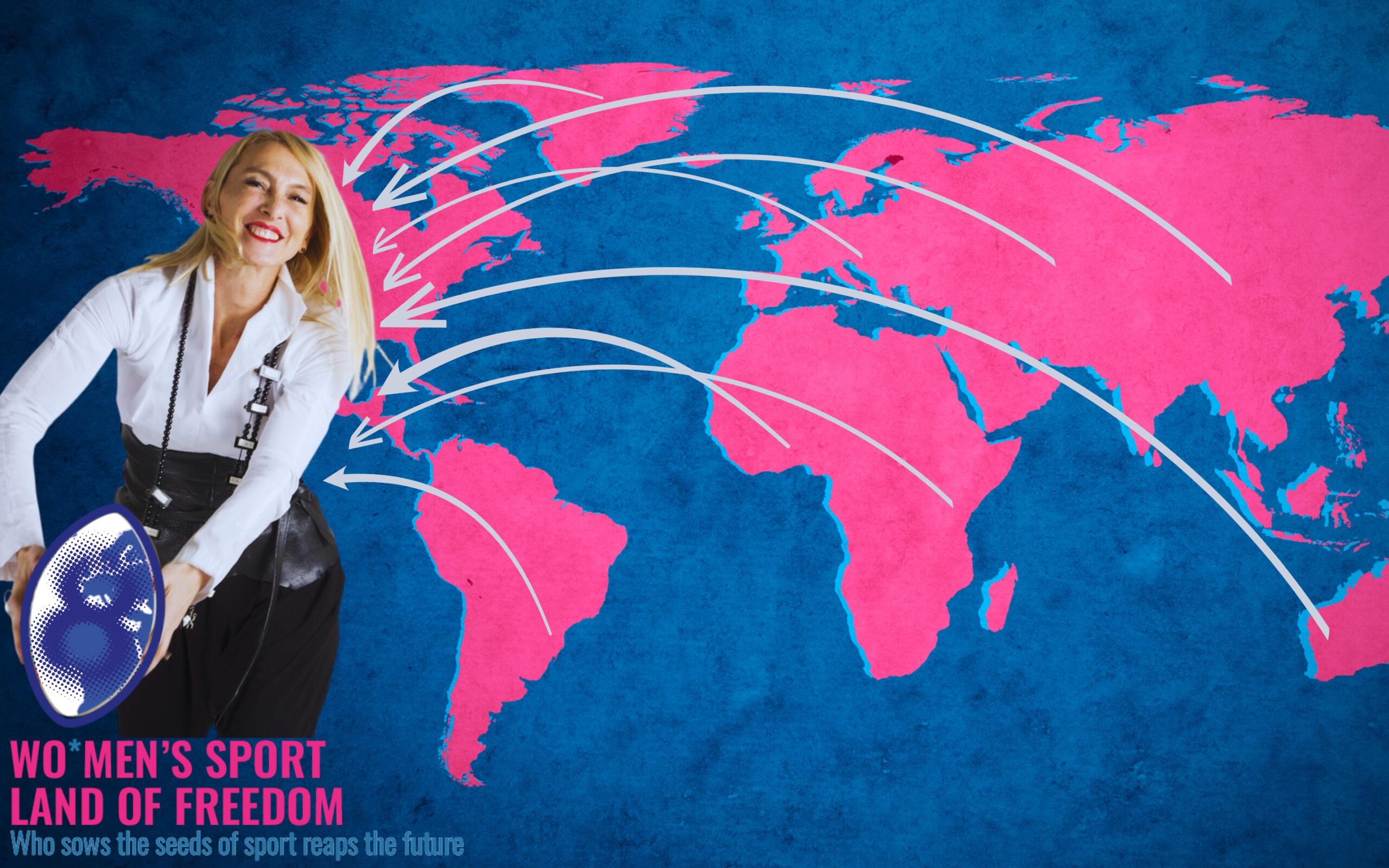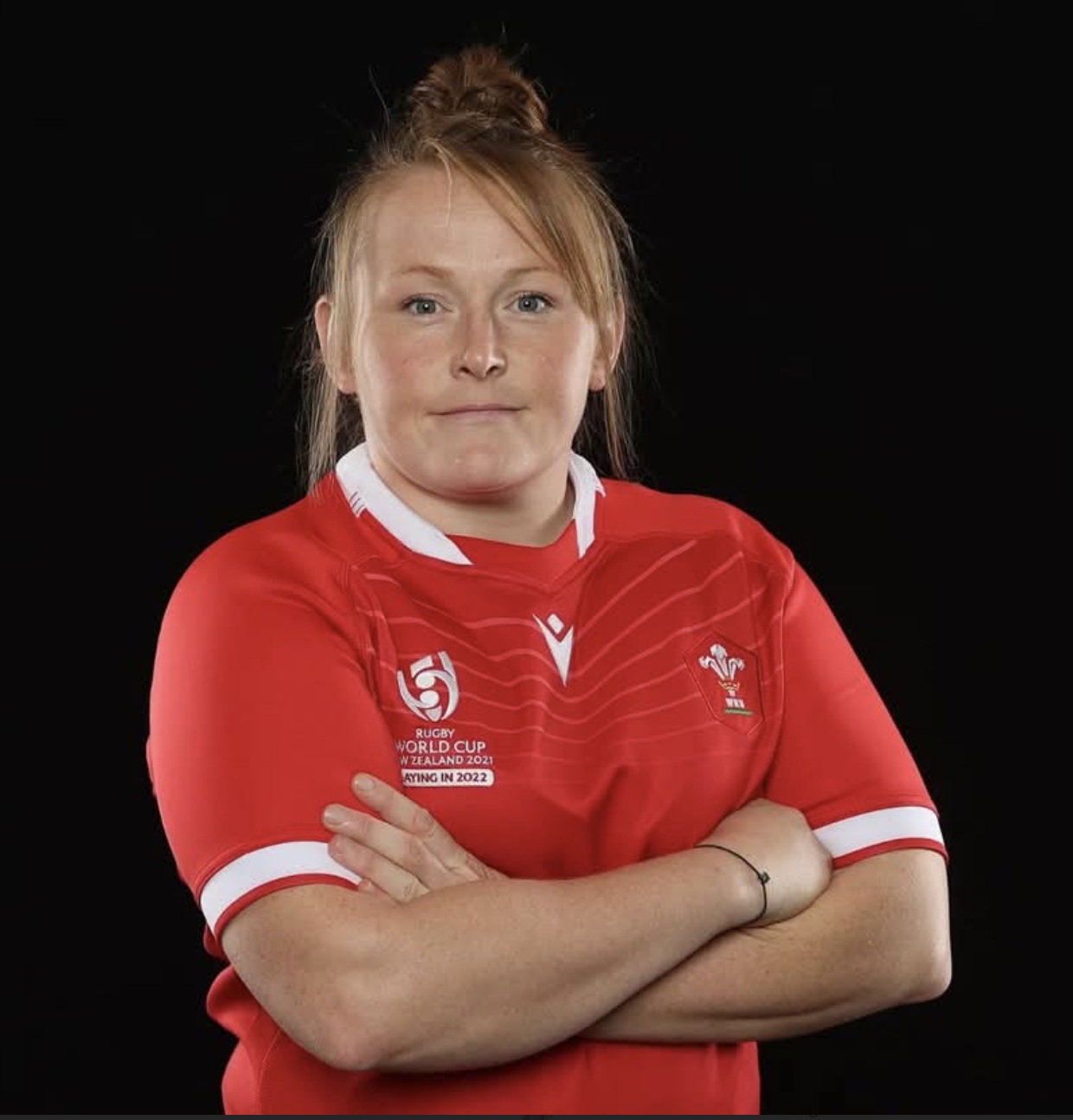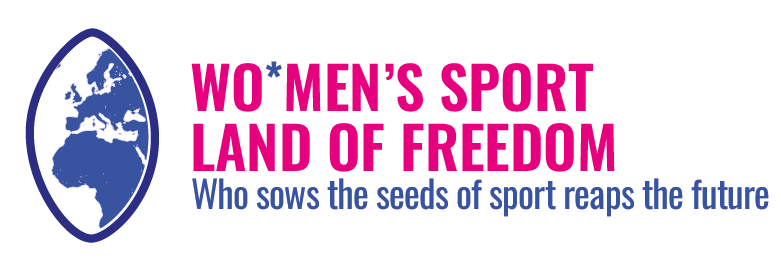
WALES: DON’T CHASE, ATTRACT.
“Don’t chase, attract”

Thanks to:
Caryl Thomasy
WRU Women and Girls Community Lead
- The history of the women’s movement in Wales
- Testimonials
- Reading time: 7 minutes
WALES - Find out more
Wales is a devolved parliamentary democracy in Northwestern Europe. In 2024, the population is estimated at around 3.19 million. Women hold 43% of the seats in the Senedd, one of the highest rates in the world. Despite this political representation, significant disparities remain: in the labor force, in income (with a gender pay gap of around 11.8%), in leadership, and in family responsibilities (women are 3.5 times more likely to be inactive due to caregiving and nearly 3 times more likely to work part-time).
(Source: gov.wales, Senedd Research, WEN Wales)
HISTORY OF THE COUNTRY
1. When did the women’s rugby movement start in your country and what is its history? How is rugby structured in your country?
The first women’s rugby formations began to take shape in Wales between the late 19th and early 20th centuries. The first documented match of the Welsh women’s national team was played in 1987 against England in Pontypool. In 1991, Wales had the honor of hosting the first Women’s Rugby World Cup, an event that contributed to giving visibility to the women’s game worldwide. Growth and international results. The Welsh women’s national team has participated in several editions of the World Cup. Their best result was a fourth-place finish in 1994, after losing the semifinal against the USA. In 1996, the Home Nations Championship was established, featuring Wales, England, Ireland, and Scotland. With the later addition of France and Italy, this evolved into today’s Women’s Six Nations. In the Six Nations, Wales finished second on three occasions (2006, 2008, and 2009) and won the Triple Crown in 2009.
Recent developments and professionalism. In recent years, the Welsh movement has made important strides toward professionalism. Since 2022, the first professional contracts for athletes have been introduced. Growth is also evident at the grassroots level, with more clubs emerging and the opening of “Female Hubs” across Wales for girls of all ages. Today, the team is steadily growing and preparing for the 2025 Rugby World Cup, for which it qualified after securing a place in the 2024 WXV 2 tournament. In Wales, rugby is a true “religion,” and after years of development, the women’s game is consolidating its role, gaining increasing visibility and support. The Welsh Rugby Union (WRU) manages a system of national competitions for women’s rugby, structured on several levels to support growth from amateur to professional level. Main championships: Premiership: The top tier of Welsh women’s rugby. In the 2024–25 season, it featured 8 teams: Burry Port, Bonymaen, Llandaff North, Pontyclun, Seven Sisters, Caernarfon, Caereinion, and Whitland. Championship: The second tier, divided into an “East” and a “West” league, with 16 teams total (8 per group). Lower leagues: Beneath these two levels are further regional leagues, divided by geography (East Wales League, West Wales League, North Wales League). These, together with the Female Hubs, provide a clear development pathway for players of all ages, from youth to senior level, expanding the game’s reach across the country.
2. Do you think playing rugby has a social impact for a woman in your country? What can rugby offer them?
In a country like Wales, where rugby is a fundamental part of cultural identity, women’s rugby has a significant and multifaceted impact that goes well beyond sport itself. Key impacts include:
Promoting empowerment and self-confidence: Rugby requires strength, resilience, and teamwork. Participation, especially at a competitive level, helps women develop body awareness, mental toughness, and empowerment that extend into everyday life. Challenging gender stereotypes: Traditionally seen as a “male” sport, the rising visibility and success of women’s rugby in Wales directly challenge stereotypes, reshaping perceptions of women’s roles in sport and society. Improving physical and mental health: Like any team sport, rugby fosters a healthy, active lifestyle. Training improves strength, endurance, and overall fitness, while the team environment offers crucial social support that reduces stress and enhances mental well-being. Creating female role models: Elite players on the Welsh women’s team become role models for younger girls. Their dedication and success inspire the next generation to pursue sport and personal goals, on and off the field. Professional and leadership opportunities: With WRU’s introduction of professional contracts, Welsh athletes can now pursue rugby as a full-time career. Former players and female leaders also take up positions in governing bodies (World Rugby, Six Nations, Rugby Europe) and clubs, opening professional and leadership pathways. Inclusion and community spirit: Female Hubs and local clubs promote inclusivity, welcoming women of all ages, body types, and backgrounds. The rugby community creates a sense of belonging and solidarity that is especially meaningful for women who might otherwise feel marginalized.
JOURNEYS THROUGH RUGBY
1. When did you start playing rugby and how you discover it?
I started playing rugby at 15. My school didn’t offer it, but I was lucky to volunteer at my local rugby club. Thinking there wouldn’t be much interest, I organized a trial session — more than 60 girls turned up! I already watched rugby on TV, especially the Six Nations. Growing up in West Wales, I supported the Scarlets (the men’s team), but since there was no local women’s team, I mostly played hockey and tennis. A key moment for me was seeing a Welsh woman player featured in a sports magazine at school; it sparked my curiosity and made me want to learn more.
2. What has rugby taught you that has impacted your daily life? Can you give me an example of when a rugby mindset was useful?
I’ve learned so much from rugby; there are so many transferable skills between sport and life — teamwork, communication, goal-setting, and mental skills like positivity and reflection. A rugby mindset helps me when learning new skills or developing parts of my game. For example, when you learn to throw a 20-meter pass, you don’t expect to get it right immediately. You start with short passes, repeat them, and gradually build the ability. It reminds me of life: progress can feel slow, but persistence pays off.
3. Can you give me 3 words that connect rugby to freedom?
Joy. Running. Control.
4. What does live in a land of freedom mean to you?
For me, it means equality and opportunities for people.
5. What object represents you and why? What is an aphorism that guides your life?
A dragon. I’m a proud Welsh woman, with fire in my belly to make the world a better place, and I love the idea of flying and exploring.
“Don’t chase, attract.”
